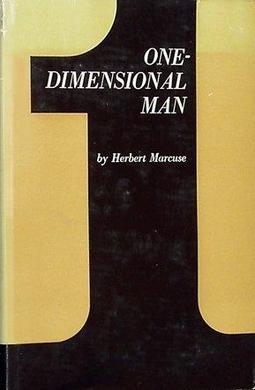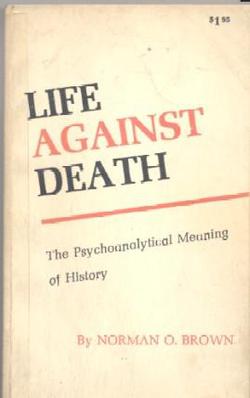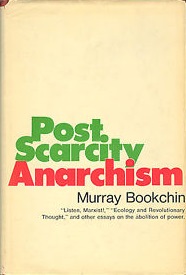
Murray Bookchin was an American social theorist, author, orator, historian, and political philosopher. Influenced by G. W. F. Hegel, Karl Marx, Peter Kropotkin, he was a pioneer in the environmental movement. Bookchin formulated and developed the theory of social ecology and urban planning within anarchist, libertarian socialist, and ecological thought. He was the author of two dozen books covering topics in politics, philosophy, history, urban affairs, and social ecology. Among the most important were Our Synthetic Environment (1962), Post-Scarcity Anarchism (1971), The Ecology of Freedom (1982), and Urbanization Without Cities (1987). In the late 1990s, he became disenchanted with what he saw as an increasingly apolitical "lifestylism" of the contemporary anarchist movement, stopped referring to himself as an anarchist, and founded his own libertarian socialist ideology called "communalism", which seeks to reconcile and expand Marxist, syndicalist, and anarchist thought.

The Frankfurt School is a school of thought in sociology and critical philosophy. It is associated with the Institute for Social Research founded at Goethe University Frankfurt in 1923. Formed during the Weimar Republic during the European interwar period, the first generation of the Frankfurt School was composed of intellectuals, academics, and political dissidents dissatisfied with the contemporary socio-economic systems of the 1930s; namely, capitalism, fascism, and communism.

One-Dimensional Man: Studies in the Ideology of Advanced Industrial Society is a 1964 book by the philosopher and critical theorist Herbert Marcuse, in which the author offers a wide-ranging critique of both contemporary capitalism and the Communist society of the Soviet Union, documenting the parallel rise of new forms of social repression in both these societies, and the decline of revolutionary potential in the West. He argues that "advanced industrial society" created false needs, which integrated individuals into the existing system of production and consumption via mass media, advertising, industrial management, and contemporary modes of thought.

Life Against Death: The Psychoanalytical Meaning of History is a book by the American classicist Norman O. Brown, in which the author offers a radical analysis and critique of the work of Sigmund Freud, tries to provide a theoretical rationale for a nonrepressive civilization, explores parallels between psychoanalysis and Martin Luther's theology, and draws on revolutionary themes in western religious thought, especially the body mysticism of Jakob Böhme and William Blake. It was the result of an interest in psychoanalysis that began when the philosopher Herbert Marcuse suggested to Brown that he should read Freud.

Eros and Civilization: A Philosophical Inquiry into Freud is a book by the German philosopher and social critic Herbert Marcuse, in which the author proposes a non-repressive society, attempts a synthesis of the theories of Karl Marx and Sigmund Freud, and explores the potential of collective memory to be a source of disobedience and revolt and point the way to an alternative future. Its title alludes to Freud's Civilization and Its Discontents (1930). The 1966 edition has an added "political preface".

Reason and Revolution: Hegel and the Rise of Social Theory is a book by the philosopher Herbert Marcuse, in which the author discusses the social theories of the philosophers Georg Wilhelm Friedrich Hegel and Karl Marx. Marcuse reinterprets Hegel, with the aim of demonstrating that Hegel's basic concepts are hostile to the tendencies that led to fascism.
Marxist aesthetics is a theory of aesthetics based on, or derived from, the theories of Karl Marx. It involves a dialectical and materialist, or dialectical materialist, approach to the application of Marxism to the cultural sphere, specifically areas related to taste such as art, beauty, and so forth. Marxists believe that economic and social conditions, and especially the class relations that derive from them, affect every aspect of an individual's life, from religious beliefs to legal systems to cultural frameworks. From one classic Marxist point of view, the role of art is not only to represent such conditions truthfully, but also to seek to improve them ; however, this is a contentious interpretation of the limited but significant writing by Marx and Engels on art and especially on aesthetics. For instance, Nikolay Chernyshevsky, who greatly influenced the art of the early Soviet Union, followed the secular humanism of Ludwig Feuerbach more than he followed Marx.

Andrew Feenberg is an American philosopher. He holds the Canada Research Chair in the Philosophy of Technology in the School of Communication at Simon Fraser University in Vancouver. His main interests are philosophy of technology, continental philosophy, critique of technology and science and technology studies.
This article is a list of major figures in the theory of libertarianism, a philosophy asserting that individuals have a right to be free. Originally coined by French anarchist and libertarian communist Joseph Déjacque as an alternative synonymous to anarchism, American classical liberals appropriated the term in the 1950s for their philosophy which asserts that individuals have a right to acquire, keep and exchange their holdings and that the primary purpose of government is to protect these rights. As a result of this history, libertarians on this list may be either of the American-style free-market variety or of the European-style socialist variety.

Post-Scarcity Anarchism is a collection of essays by Murray Bookchin, first published in 1971 by Ramparts Press. In it, Bookchin outlines the possible form anarchism might take under conditions of post-scarcity. One of Bookchin's major works, its author's radical thesis provoked controversy for being utopian in its faith in the liberatory potential of technology.

Knowledge and Human Interests is a 1968 book by the German philosopher Jürgen Habermas, in which the author discusses the development of the modern natural and human sciences. He criticizes Sigmund Freud, arguing that psychoanalysis is a branch of the humanities rather than a science, and provides a critique of the philosopher Friedrich Nietzsche.

Main Currents of Marxism: Its Origins, Growth and Dissolution is a work about Marxism by the political philosopher Leszek Kołakowski. Its three volumes in English are The Founders, The Golden Age, and The Breakdown. It was first published in Polish in Paris in 1976, with the English translation appearing in 1978. In 2005, Main Currents of Marxism was republished in a one volume edition, with a new preface and epilogue by Kołakowski. The work was intended to be a "handbook" on Marxism by Kołakowski, who was once an orthodox Marxist but ultimately rejected Marxism. Despite his critical stand toward Marxism, Kołakowski endorsed the philosopher György Lukács's interpretation of the philosopher Karl Marx.

The Concept of Nature in Marx is a 1962 book by the philosopher Alfred Schmidt. First published in English in 1971, it is a classic account of Karl Marx's ideas about nature.

An Essay on Liberation is a 1969 book by the Frankfurt School philosopher Herbert Marcuse.

Herbert Marcuse was a German-American philosopher, social critic, and political theorist, associated with the Frankfurt School of critical theory. Born in Berlin, Marcuse studied at the Humboldt University of Berlin and then at Freiburg, where he received his PhD. He was a prominent figure in the Frankfurt-based Institute for Social Research – what later became known as the Frankfurt School. In his written works, he criticized capitalism, modern technology, Soviet Communism, and popular culture, arguing that they represent new forms of social control.

The Ecology of Freedom: The Emergence and Dissolution of Hierarchy is a 1982 book by the American libertarian socialist and ecologist Murray Bookchin, in which the author describes his concept of social ecology, the idea that human social problems cause ecological problems and can be solved only by reorganizing society along ecological and ethical lines. The book is considered Bookchin's magnum opus, but it has also been criticized as utopian.

Soviet Marxism: A Critical Analysis is a 1958 book by the philosopher Herbert Marcuse, in which the author provides a critique of the Ideology of the Communist Party of the Soviet Union. It received positive reviews, describing it as a convincing discussion of its subject.

Sexuality and Its Discontents: Meanings, Myths, and Modern Sexualities is a 1985 book about the politics and philosophy of sex by the sociologist Jeffrey Weeks. The book received positive reviews, crediting Weeks with explaining the theories of sexologists and usefully discussing controversial sexual issues. However, Weeks was criticised for his treatment of feminism and sado-masochism.

Hegel's Ontology and the Theory of Historicity is a 1932 book about the philosopher Georg Wilhelm Friedrich Hegel and his theory of historicity by the philosopher Herbert Marcuse. It is influenced by the philosopher Martin Heidegger.

The long march through the institutions is a slogan coined by socialist student activist Rudi Dutschke around 1967 to describe his strategy to create radical change in government by becoming part of it. The phrase "long march" is a reference to the physical Long March of the Chinese communist army.
















